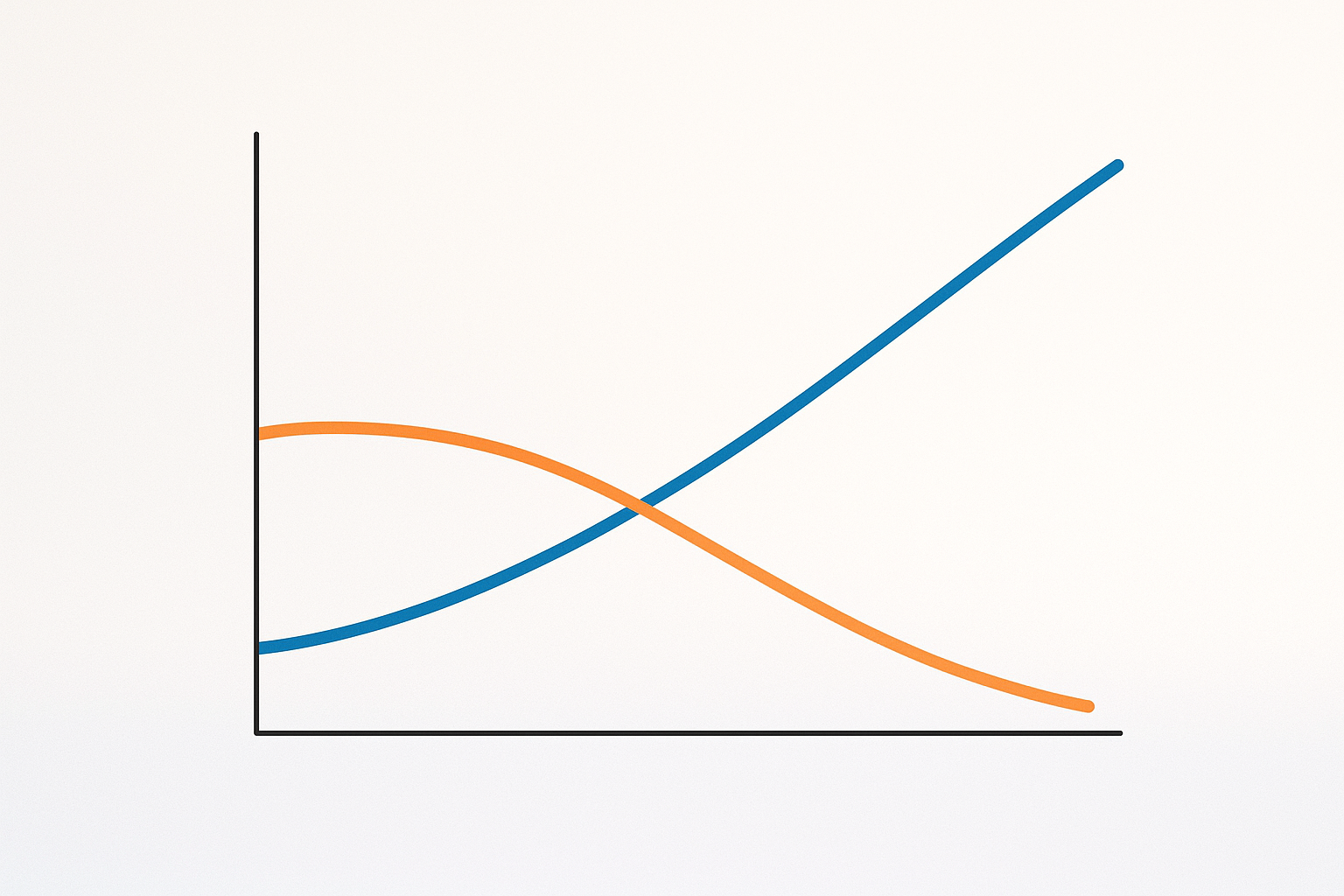Why the Knowledge Economy Is Our Next Leap

For most of human history, wealth came from land and crops. Then factories and machines took the lead. Today, we're entering a new chapter: the knowledge economy, where ideas, skills, data, and relationships generate most value. This shift touches everyone—from students choosing careers to business owners rethinking assets to policymakers designing the next decade's infrastructure. Understanding what's changing and why helps you spot opportunities, adapt faster, and share in the gains.

What the knowledge economy means
In a knowledge economy, most value comes from intangibles—ideas, data, relationships, and skills—rather than physical goods. Think of software code that powers millions of devices, a brand that customers trust, a training program that boosts team performance, or a database that helps researchers cure disease. These aren't things you can touch, yet they drive outcomes and profits.
Examples of intangible assets include software platforms, research and development, industrial design, brand equity, and curated datasets. According to WIPO intangible investment data, global spending on intangibles climbed from about 10 percent of GDP in 1995 to 13.6 percent in 2024 and has exceeded investment in tangible capital—factories, machinery, buildings—since 2009. That crossover marks a structural change: companies and governments now pour more resources into knowledge assets than into physical ones.
You see everyday signs all around. Apps deliver services once housed in brick-and-mortar offices. Online courses replace classroom seats. AI tools suggest edits, draft reports, and surface insights in seconds. Each relies on intangible infrastructure—algorithms, content libraries, user feedback loops—that scales quickly and improves with use.
Why it's accelerating now
Three forces are speeding the transition. First, artificial intelligence is reshaping nearly every job. UNCTAD technology and innovation analysis notes that about 40 percent of jobs worldwide are affected by AI, and in advanced economies roughly 27 percent of roles could be enhanced or transformed by intelligent tools. That doesn't mean mass unemployment; it means tasks shift, workflows evolve, and new skills become valuable.
Second, cloud computing and open platforms lower barriers. A decade ago, building sophisticated software required server rooms and large teams. Now, small groups tap shared infrastructure, publish code on collaborative platforms, and reach global audiences overnight. Knowledge spreads faster, feedback loops tighten, and experimentation costs less.
Third, connectivity is widening—but unevenly. Broadband and mobile networks link billions, yet gaps persist. Inclusive growth demands investment in infrastructure, skills training, and data governance so benefits reach rural areas, underserved communities, and smaller enterprises. Global policy guidance emphasizes these pillars to ensure the shift doesn't leave people behind.
The new assets shaping growth
Why do intangibles now outpace tangibles? They scale differently. Once you write a piece of software or develop a process innovation, the marginal cost of sharing it is near zero. A thousand users or a million—same code, same insight. Physical goods need raw materials, manufacturing lines, and logistics for every additional unit. Intangibles also spill over: one firm's R&D can inspire competitors, and open standards amplify collective progress.
The global trendlines confirm the shift. Intangible investment surpassed tangible capital formation in 2009 and the gap has widened since. Sweden leads in intangible investment intensity, channeling a higher share of its economy into software, design, and organizational capital than most peers. That country-level focus illustrates how sustained commitment to knowledge assets can drive productivity and competitiveness.
Practical takeaway: organizations that actively manage intellectual property, maintain clean data, invest in employee learning, and cultivate brand trust see measurable productivity gains. Treating these as core assets—not afterthoughts—becomes the difference between stagnation and growth.
Jobs, skills, and the digital divide
AI typically automates discrete tasks rather than entire jobs. A radiologist still interprets scans, but algorithms flag anomalies first. An accountant still advises clients, but software handles routine reconciliations. Many roles change shape: repetitive steps vanish, judgment and creativity gain weight. UN guidance suggests a significant portion of jobs can be upgraded by AI, raising productivity and freeing time for higher-value work—provided people have support to adapt.
The risk is uneven access. Without connectivity, devices, or digital literacy, workers and small firms miss out. Closing these divides requires three things: infrastructure that reaches underserved areas, training programs that build basic digital and analytical skills, and safe data practices that protect privacy and security. When these are in place, more people can participate and contribute.
Simple steps matter. Spend an hour or two each week learning a digital skill—spreadsheet formulas, data visualization, prompt crafting for AI assistants. Build problem-solving and communication abilities that pair well with smart tools. Employers benefit when they invest in on-the-job training and recognize skills gained outside traditional credentials.

What countries are doing
Governments worldwide are adjusting policy levers to capture knowledge-economy gains. Sweden's strong intangible investment reflects decades of support for R&D, digital infrastructure, and education reform. Other nations focus on export diversification—moving from commodity dependence toward services, software, and knowledge-intensive manufacturing.
Global policy guidance emphasizes three priorities: expanding broadband and digital infrastructure so connectivity reaches rural and low-income areas; funding skills development and lifelong learning to help workers transition; and establishing data governance frameworks that balance innovation with privacy and security. These measures widen participation and reduce the risk that a few clusters capture all the upside.
Tracking progress is straightforward. Watch whether intangible investment as a share of GDP rises in your region. Monitor job postings for new skill demands. Observe whether small businesses adopt digital tools and whether local schools integrate data literacy into curricula. These signals reveal whether the transition is inclusive or concentrated.
Sharing value more fairly
Today, much of the value generated by data and creativity flows to a handful of intermediaries—large platforms and tech companies. New models aim to reward the people who contribute knowledge, compute power, and attention. One framework outlines three pillars for fairer participation: Collective Minds, where individuals earn by contributing insights and curated information; Co-ownership of AI, allowing users to share in the models they help train; and Distributed Computation, compensating people who lend processing power to shared networks. This approach, detailed in Marpole whitepaper: core architecture, uses transparent governance and community oversight to ensure broader access and fair splits.
These models align with calls for inclusive growth. When contributors see direct returns, participation rises. When governance is transparent, trust deepens. The result is a knowledge economy that lifts more people rather than concentrating gains at the top. Policymakers and platform builders are exploring how to scale these ideas while maintaining quality and security.
How to get ready today
Individuals can start small. Dedicate one to two hours a week to learning a digital skill—data analysis, basic coding, or working with AI writing assistants. Build a simple portfolio that showcases projects, even if they're personal experiments. Practice using AI tools on real tasks: draft summaries, generate ideas, automate repetitive steps. The goal is fluency, not mastery.
Small businesses should document core processes and treat software, customer insights, and brand reputation as strategic assets. Clean your data so it's searchable and reusable. Invest in employee training; skills compound. Consider open-source tools and shared platforms to reduce costs while tapping into collaborative ecosystems.
Communities and local leaders have a role, too. Expand broadband access, fund training centers, and promote data stewardship that protects privacy while enabling innovation. Encourage schools and libraries to offer digital literacy programs. Support entrepreneurs who build locally relevant applications. These steps widen the on-ramp to the knowledge economy.
FAQs
Q: What is the knowledge economy in simple terms?
A: It's an economy where most value comes from intangible assets—ideas, skills, data, software, brands, and relationships—rather than physical goods. Investment in these intangibles now exceeds spending on traditional capital like factories and machinery, reshaping how businesses grow and workers succeed.
Q: Will AI take my job or make it easier?
A: AI usually automates specific tasks, not entire jobs. Your role may shift: routine steps disappear, leaving more time for judgment, creativity, and problem-solving. About 40 percent of jobs worldwide are affected, but many can be enhanced rather than replaced. Success depends on gaining complementary skills—communication, critical thinking, and digital literacy.
Q: How can small businesses benefit from the knowledge economy?
A: Treat intangible assets—software, customer data, employee expertise, brand trust—as core investments. Document your processes, use cloud tools to scale without heavy infrastructure costs, and train your team continuously. Clean data and a strong reputation often yield better returns than additional equipment, helping you compete with larger firms.
Q: What can countries do to avoid falling behind?
A: Expand broadband and digital infrastructure so connectivity reaches underserved areas. Fund lifelong learning and skills programs that prepare workers for shifting roles. Establish data governance frameworks balancing innovation with privacy. Track intangible investment trends to benchmark progress. Inclusive policies ensure more people participate and share in the knowledge economy's gains.


